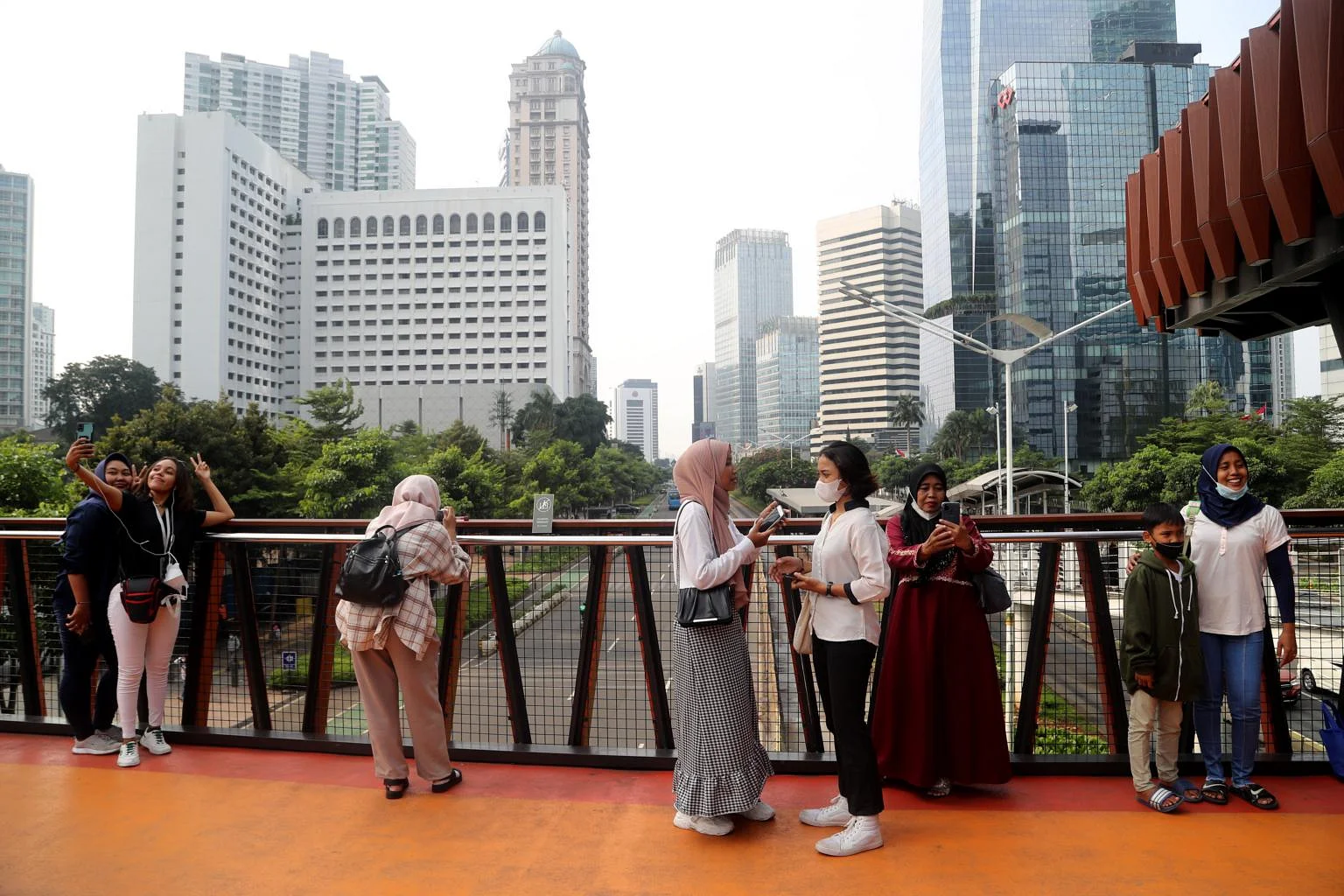June 30, 2022
SINGAPORE – Many countries are seeing a resurgence of Covid-19 cases, with most saying the surge is due to the newer and more transmissible BA.4 and BA.5 Omicron sub-variants.
New studies suggest these sub-variants are not repelled by previous infections or Covid-19 vaccines, which is why they have become the dominant strains.
We take a look at how these strains are affecting some countries:
Australia: Warnings for Canberra and Queensland
Modelling has shown that Canberra is experiencing another wave of Covid-19 infection, and this is expected to last through the current winter period into July and potentially early August, said Australian Capital Territory (ACT) Health Minister Rachel Stephen-Smith on Tuesday (June 28).
The ACT set a new record for Covid-19 hospitalisations on Tuesday. There were 121 people being treated in hospitals, the highest number since the start of the pandemic.
In Queensland, hospital admissions have been on the rise throughout June, Chief Health Officer John Gerrard said on Tuesday, adding that 38 per cent of the genomically sequenced cases in the state were the BA.4 and BA.5 sub-variants. Three to four weeks ago, the figure was just under 2 per cent, he noted.
Mr Gerrard urged people aged over 65, and those who have weakened immune systems to get their fourth dose of a Covid-19 vaccine.
Britain: A third wave
According to a survey by the Office for National Statistics, an estimated 1.7 million people were infected in the week that ended on June 18. This was a 23 per cent increase from the previous week, which saw a 43 per cent jump from the week before.
This is the country’s third wave this year, The Guardian reported.
The government is offering further booster shots to those over 65, front-line health and social workers, and vulnerable younger people in the coming autumn months. There is a possibility that this list may include all those over the age of 50 as well.
European Union: Cases rising in some countries
Infections are also rising in several EU nations, including Portugal, Austria, France, Germany and Italy.
The impact of BA.5 is most apparent in Portugal, where it has fuelled a significant rise in infections. That surge now appears to have plateaued, but is still higher than the rates elsewhere.
In France, new cases have been steadily rising since the end of May, with the seven-day moving average of daily new cases more than quadrupling between the May 27 figure of 17,705 and June 27’s tally of 71,018.
Health Minister Brigitte Bourguignon said that people should start wearing mask again in crowded areas, especially on public transport, calling it a “civic duty”. Vaccination chief Alain Fischer also said he was in favour of reinstating some restrictions to limit the spread of the virus.
Indonesia: Peak expected in July

People gather on Pinisi Bridge in Jakarta, Indonesia, on June 22, 2022. PHOTO: EPA-EFE
Indonesia has seen a rise in cases due to the Omicron sub-variants, and is expecting a peak in July, when there could be about 17,400 daily new cases.
This is about 30 per cent of the figure during the peak of the original Omicron variant in the third week of February, when the daily new cases reached 58,000.
The seven-day average of daily new cases rose 70 per cent to 1,688 on June 25, from 996 cases the previous week, according to government data.
The Indonesian Doctors Association last week called on the government to review its relaxed mask rule and reimpose mandatory polymerase chain reaction (PCR) tests for domestic travel, Kompas.com reported.
Malaysia: New wave may emerge soon
Health Minister Khairy Jamaluddin has said a potential new wave may emerge in the next few months, even though the current situation remains under control. For this reason, preventive measures such as the wearing of face masks in closed areas would remain in place.
On Tuesday, the country recorded 2,025 new infections.
For the week between June 19 and 25, there was a 10.9 per cent increase to 15,739 cases from the 14,195 the week before.
Health director-general Noor Hisham Abdullah said, however, that the number of deaths showed a 38.1 per cent drop – from 21 in the previous week to 13.
Pakistan: Masks now mandatory on domestic flights
On June 26, Pakistan’s aviation regulator made masks mandatory on domestic flights due to a gradual rise in the number of Covid-19 cases across the country.
The order came a day after Karachi, Pakistan’s biggest city, said its Covid-19 positivity ratio, or the rate of positive cases out of all tests conducted, rose to 21 per cent compared with the national rate of 2.8 per cent.

